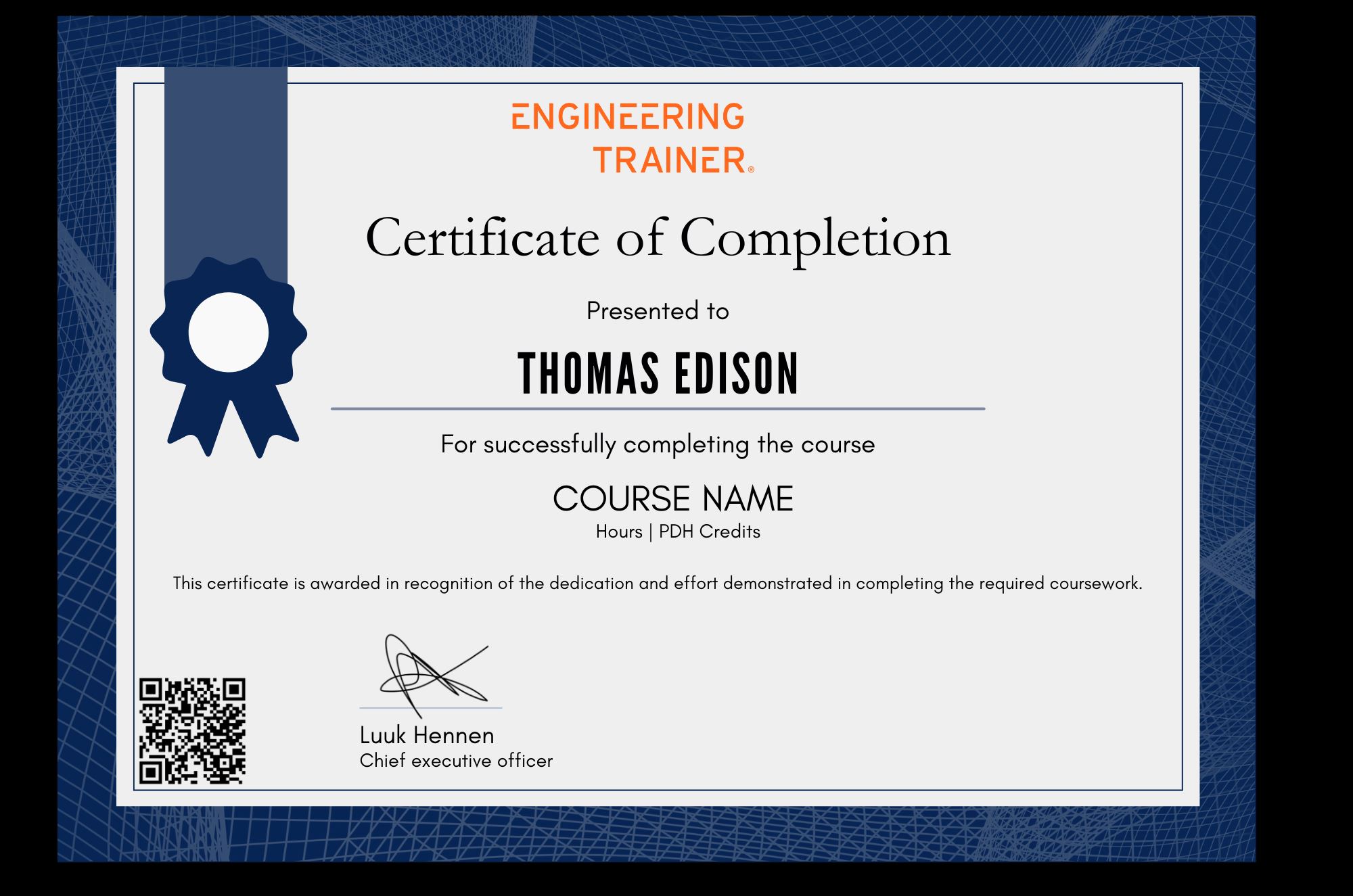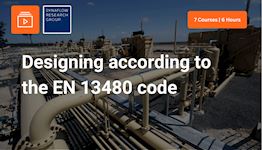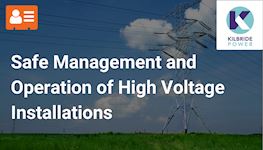Introduction to High Voltage Installations
Why take this course?
Gain foundational knowledge of High Voltage (HV) electricity and safety principles. This self-paced course covers HV risks, hazards, system components, single-line diagrams, and essential regulations. Learn about personnel organization and vital maintenance procedures for safe HV installations. Includes video lectures, quizzes, and a certificate with PDH credits.
What you'll learn
After this course, you...
• have an understanding of the legal duties, applicable standards and dangers associated with HV installations,
• will be familiar with HV installation layout and boundaries,
• know the components of typical indoor and outdoor HV installations, and understand the principles of power transformer operation,
• understand the importance and use of single line diagrams, and can interpret these and compare to a physical system,
• familiar with the best practices in design, construction, operation and maintenance of HV installations,
• able to review maintenance, audit and inspection reports, work plans, and switching plans,
• able to review and implement a safe system of work on or near the HV installation,
• are able to contribute to the development and implementation of asset management plans.
About the course
To meet demand growth, rapid expansion of the electricity generation, transmission, and distribution infrastructure is needed. This growth will require a considerable increase in the number and diversity of organizations and persons working with electricity, and in particular High Voltage (HV) electricity. Without a complimentary investment in training, there is a potential deficit in the competence of persons and companies who manage and operate HV installations.
This introductory course provides participants with a basic understanding of High Voltage installations and associated Best Practice principles. First participants are introduced to the specific Risks and Hazards associated with High Voltage (HV) Electricity. The components of an HV system are explained together with how these are shown in a single-line diagram. The common terms and abbreviations are detailed, together with the typical organizational structure for personnel working with an HV system. The applicable standard and regulations are introduced, and the required maintenance procedures to ensure a safe system are shown.
The course consists of 7 hours of online live sessions with the instructor. All training content is provided through your EngineeringTrainer account.
Meet your instructor
Who should attend this course
Those involved in design, construction, commissioning, management, maintenance and operation of HV installations:• Developers of HV Infrastructure
• Independent Power Producers
• HV Installation Owners and Managers
• Consultants and Contractors
• Engineers and Technicians
• Project Managers and Safety Professionals
Prerequisites
No particular qualification in electrical engineering is required.Program & Details
-
High Voltage Fundamentals and Dangers
Live
1. Definition of High Voltage
2. Dangers from HV electricity
3. Risk Assessment
4. Mitigation measures -
Legal requirements and duties
Live
1. Legal framework
2. Legal duties (Employers, owners, managers, designers, contractors and persons)
3. Extent of control
4. Liability of directors and managers
5. Onus of proof -
Design , Installation , Commissioning - Applicable Standards
Live
1. IEC 61936-1:2021 - Power Installations exceeding 1kV a. c.
2. EN 50522:2022 – Earthing of power installations exceeding 1kV a. c.
3. Design Risk Assessment
4. O&M documentation
5. Training and handover -
Management and Operation - Applicable Standards
Live
1. EN 50110-1:2023 - Operation of electrical installations
2. Installation layout
3. Installation Boundaries
4. Roles and Responsibilities
5. Electrical Safety Rules
6. Dead Working rules
7. Safe Working Distance
8. Planning Work and Operations
9. Guidance on Best Practice and future developments
10. Preventable accident case study -
Indoor HV Installations
Live
1. AIS Switchgear
2. GIS Switchgear
3. Cable installation and termination
4. Transformers
5. Protection relays
6. Protection panel
7. AC auxiliaries
8. HVAC
9. DC system
10. Security, Signs, Notices and documentation -
Outdoor HV Installations
Live
1. Disconnector and Earth switch
2. Circuit Breaker
3. Current Transformer
4. Voltage Transformer
5. Power Cable
6. Overhead conductor
7. Transformer
8. Surge Arrestor
9. Neutral Earth Resistor
10. Pre-Insertion Resistor
11. Back-Up Generator
12. Steelwork
13. Compound -
Power Transformer
Live
1. Types
2. Transformation Ratio
3. Vector Group
4. Tapchanger
5. Cooling
6. Bushings and connections
7. Protection devices
8. Testing
9. Transport
10. Installation and Commissioning -
Single-Line Diagram
Live
1. Importance and status
2. Information provided
3. Understanding the SLD
4. Planning work
5. Planning switching operations -
Maintenance :- Guidance on Best Practice
Live
1. Legal requirements
2. Maintenance policy
3. Maintenance plan
4. Guidance material -
Safe System of Work
Live
1. Requirement
2. Structure
3. Organisation
4. Safety Rules, Procedures and Forms
5. Safety documents
Certification


Why choose EngineeringTrainer
-
Unlimited Team-wide Access
-
Advance Technical Competences
-
Courses by Industry Authorities
Since using EngineeringTrainer our internal mentorship has a much more matured character.
Logan Chapman - COO at Chapman Consulting Inc.
Request a Quote
Train Smarter. Grow Faster.
Build real-world skills that help you make better engineering decisions, reduce errors, and stand out in your field.








